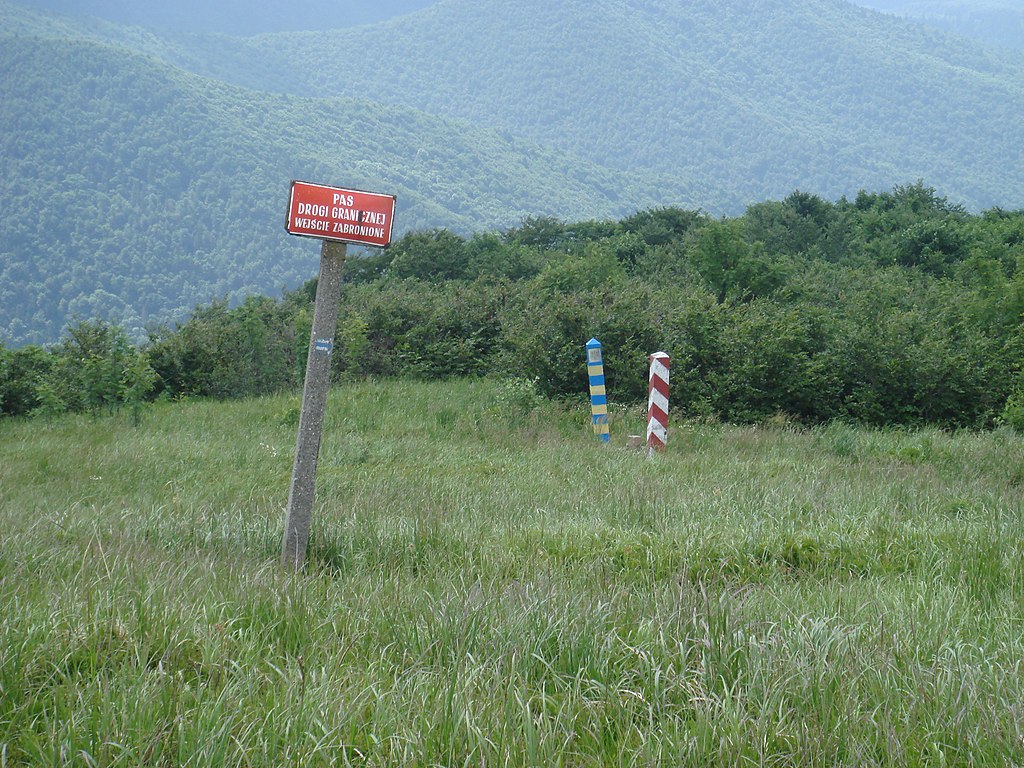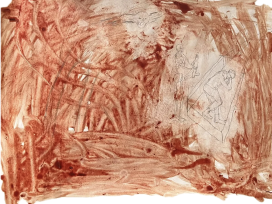At first, everyone contrasted the outspoken freedom of Ukraine’s media with Russia’s blank censorship. Two years on, the gap doesn’t look that tremendous.
It has even shifted since I began researching Ukrainian media legislation at the University of Glasgow in 2024. Cases such as Bihus.info journalists being bugged and the subsequent backlash against the Security Service of Ukraine (SSU), who nevertheless couldn’t be directly linked to Zelenskyi’s Office, and the scandal on temnycky or internal guidelines for editors passed down from above at Ukrinform, the National News Agency of Ukraine, complicate media legitimacy. I’ve had to convince my fellow students who read the sobering New York Times article on press freedom that Ukraine still accommodates independent journalism.
I firmly believe this to be true. So do my research participants – editors and CEOs of major news publications in Ukraine – whom I nevertheless cannot quote directly. This may seem contradictory, but it’s only problematic if that discussed doesn’t exist or has clearly died – no one ponders over the existence of press freedom in North Korea, for example.
It is also true, however, that martial law poses unprecedented challenges for media pluralism in an age of splinternets and digital convergence, putting twenty-first-century democracy – already in a fight with populism, disinformation and platform algorithms – to the test with no predetermined answers.
One of the editors I spoke to talked a lot about still present double standards for local and foreign reporters in Ukraine: the former think twice if they should post certain photos of recent blast consequences in Kharkiv or reveal certain details they received unofficially; the latter meanwhile don’t need to consider such constraints. Even national-level domestic reporters are often not being cautious enough, said the editor, given the frequency of Russia’s practice of double-strikes in Kharkiv. Good journalistic practice in Ukraine is cautious, sacrificing the exclusive to national security.
Some would call it a developing habit of self-censorship, some the ability to think as a responsible citizen.

‘Border zone, entry prohibited’, Polish / Ukraine border, Wielka Rawka mountain. Image by Ondřej Žváček via Wikimedia Commons
These limits on martial law interference, enshrined in law, have become the subject of my research. More specifically, I’m looking at how media practitioners are influenced by the recently adopted Law on Media, which was advised by the EU Commission as a precursor to membership talks, criticized by organizations such as the International Federation of Journalists and reservedly accepted by Reporters Without Borders for expanding the remit of the politicized media regulator, whose board members are appointed directly by the president and parliament.
In short, martial law cannot be blamed for all the evidence of deteriorating media freedom. There’s definitely more to the story here than just concern over a regulator’s expanded power. Cases of impactful investigations conducted in the last two years, alongside histories of delivering them, exemplify this statement.
Journalistic identity and citizen thinking
In early 2022, the growing complexities of the journalist’s identity became a hot topic. Inner conflict was quickly shaped in the first days of reporting: an abundance of top-notch Western journalists, who offered their expertise in reporting on conflict and HEFAT (hostile environment and first aid training), would often stipulate how they had never felt what it was like to report a full-scale war in their home country.
Almost every Ukrainian journalist seemed to agree that one’s concerns as a hromadyanyn (citizen) had to be kept in mind alongside one’s professional thinking and were inseparable from one’s media work. Though worded differently, statements by journalists of all kinds, from art critics to hardline news reporters, became ubiquitous rhetoric: we shouldn’t thoughtlessly criticize the authorities, institutions and officials, because it would question the legitimacy of our country’s government, which is precisely what Russia is doing to justify the invasion and Putin’s distorted view of Ukraine as an illegitimate state.
Implementing this fine idea in daily work, however, wasn’t easy for two solidly entrenched reasons. Firstly, independent journalism as the fourth estate has matured into reporting from an external position at critical distance from those in power. While this makes perfect sense, it becomes a lesser concern once your state is fighting for existence, with its survival and legitimacy resting on the cornerstone of maintaining a functioning, potent government. Secondly, given the rich history of Ukraine’s oligarchic pluralism, where politically affiliated media moguls used to have a grip on two-quarters of audience share, resulting in thriving dzhynsa (a unique Ukrainian term for political advertising that is not marked as such), and the inevitable hardships of a transitional democracy, there was zero possibility that the country would escape major misuse scandals.
Time has played its part, altering what might seem the most sincere and rational media-politics nexus in decades.
For many watching from the outside, the first visibly bold move was perhaps made by the Kyiv Independent when they published a controversial, award-winning investigation on Ukraine’s International Legion, revealing arms misappropriation, abuse and nepotism in connection with a notorious Polish felon serving as a unit commander. A clear message regarding self-censorship was delivered by KI’s investigative team: ‘We believe that journalism must preserve its watchdog function in any circumstances … We exposed the misuse because we think it’s in the best interests … of the Ukrainian military as a whole’.
Public interest journalism had once again redrawn its boundaries. Or at least that’s how many foreigners saw the move back then.
From the internal perspective, the team would clearly emphasize how gentle, conscious and considerate they were in exposing details of the piece in order not to make the foreign public think that the issues could be attributed to the political system as a whole. Additionally, it takes being a national journalist to note how the tension stirred up by the Presidential Office’s expanding involvement in the media sector, already criticized before the full-scale invasion, has intensified. The United News Telethon, 24/7 reporting launched as the war escalated, refused to give bandwidth not only to pro-Russian channels, such as Medvedchuk’s infamously sanctioned outlets in 2021, but also to the TV channel of Ukraine’s former president Poroshenko alongside a number of others thought to be under the auspices of Zelenskyi’s political opponents. ‘Not finding a common ground’ was the vaguely framed basis.
From the get-go, it became a moot point for many that was well tolerated due to more urgent priorities. And while talks on political bickering versus unprecedented unity staged for external stakeholders had been revived by independent outlets as early as spring 2022, it took until late 2022 before wide debate on the much-needed media reform, required by the EU Commission, brought the distinction between the government and journalists to life, before any major foreign publication turned its eye to the issue of press freedom in Ukraine.
Martial law and political pressure
When all the hopes for a quick victory were abandoned and the war entered its long-lasting phase, the need for media watchdogs sharpened.
More and more stories like that of the deputy head of the Presidential Office allegedly using donated cars for personal purposes started to surface, making journalists face ethical dilemmas: What is worse – to silence misappropriation or crush public morale? How is it best to frame misuse to not feed Russian propaganda? Wouldn’t any sign of malpractice undermine the West’s willingness to send help?
With such contradictions piling up, it would seem that the miraculous leap to solidarity on intensified attack has its own time frame. Despite fighting the same enemy, some of the country’s institutions, officials and businesses certainly returned to their good old codes of conduct once the feeling of a new routine had been established.
More fund misallocation, human rights abuse and corruption scandals like that of the misuse of Ministry of Defence funds, procuring eggs at inflated prices, were exposed by journalists, giving food for thought to international organizations and a fresh coverage angle for foreign correspondents sent to Ukraine.
Indeed, it is hard to think of a better weapon than time. Accompanied by mounting speculation on the right defence strategy, complaints on how territorial recruitment centres (known as TRCs) conscript men going about their daily lives and frustrating cases of vested interests influencing decisions, the image of a brave nation of freedom lovers has slowly changed.
When Bihus.info discovered SSU’s spyware in their hotel rooms and published an investigation on the allegedly planned crackdown on them this year, the confrontation between different forces inside Ukraine became way more palpable.
The coalition of Ukrainian journalists’ subsequent attendance at the G7 has given rise to a new topic for major media outlets covering the Russo-Ukrainian war, and turned even the most defensive and optimistic citizens prone to justify minor breaches – like me – into anxious pessimists.
Martial law no longer sounds like a feasible justification at all. Nor could it have served, many think in hindsight, as a reason for concealing the taxation reports of some local authority income, switching off opposition TV channels, or manually controlling access to some newly liberated territories – all the flawed practices either attributed to a specific political culture that didn’t change overnight or just, at times, bad governance.
A few months after the Bihus.info case, Ukrainian Pravda, one of the most impactful national news outlets, published an even more sobering piece for those not previously familiar with civil society concerns. A former governmental information agency employee revealed that the team at Ukrinform used to struggle with informal lists of ‘appropriate’ and ‘not appropriate’ speakers on certain topics. The guidelines were distributed internally by the director general appointed by the Cabinet of Ministers of Ukraine and approved by Zelenskyi. Some media practitioners even drew parallels, clearly not without resentment and exaggeration, between the story of temnyky and similar guidelines from the dark times of Kuchma or Yanukovich.
For some inside the local journalistic milieu, there were two enemies from now on: Russia and the Office itself.
Can we maintain press freedom?
Although the situation may sound dire, it’s a big relief for many that we are talking about it right now.
Criticizing either the Office, the regulator or local governors, or all of them, each of my research participants emphasized that, from their perspective, there’s still no single institution in Ukraine that can revert the history of independent journalism, having slowly matured after the collapse of the Soviet Union in cases like that of Gongadze.
Although the path of civil society actors doesn’t seem straightforward at all, given the Russian invasion as backdrop that many see as complicit, it has clear, workable goals. Conducting investigations, speaking out and criticizing various bodies is more than possible in today’s Ukraine. As joining the EU remains a strong pledge of the national government, there’s hope that abiding by the rule of law will enable Ukraine to react to scoops on corruption by investigative journalists with relatively sincere and effective new appointments.
Despite many issues being exposed and contested in relation to martial law, a number of recent achievements are also evident. Compared to last year, Ukraine has jumped 18 positions in the World Press Freedom Index after adjusting its media legislation to the 2018 EU AVMS Directive. The non-profit sector has clearly been mobilized, combining grassroots with international organization support, gaining more power and agency than ever before. For example, domestic media NGOs are emphasizing anti-corruption investigations in 2024, offering awards and targeted training for journalists. And even though more issues are expected to pile up in the years to come, literally no one – from national-level CEOs to regional editors taking part in my research – felt that there’s a battle that independent outlets have already lost.
Perhaps the chaos, patchiness and pluralism characteristic of our independence is indeed the force that shields Ukraine from resembling authoritarian Russia.
This article was commissioned as part of Come Together, a project leveraging existing wisdom from community media organization in six different countries to foster innovative approaches.









